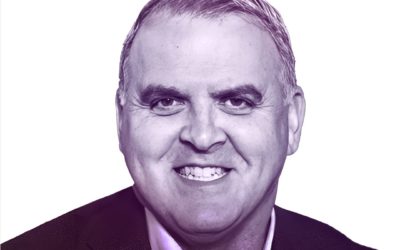“First for internal employees, we wanted to make sure everybody was comfortable with their work situation.”
Sean DeDeyn is the Managing Partner at The Axel Group. The Axel Group is a full service staffing and recruiting firm that focuses in recruiting top talent in the Architecture, Engineering, Environmental and Construction industries. Sean talks with Anthony about how their company has adapted to a change in circumstances due to COVID-19 and the importance of taking care of your employees through adversity.
Making your employees comfortable.
Sean: “First for internal employees, we wanted to make sure everybody was comfortable with their work situation. Even though we were going to lock-down and in the beginning nobody really knew what that meant, how long it would be, how that would immediately impact the business, we had to try to stay as business as usual and try to continue to make an impact on the things that we had available. We made sure they had workstations at home that mimicked their office workstations so that they were comfortable. If they didn’t have something, we went out and got that for them.”
Sean: “We made sure that all of our softwares were integrated so that they could talk to each other through the computer system. Then we wanted to make sure first, is our business in a position where financially we can see how we can make it through periods like this if there are long periods of revenue loss.”
Sean: “So we actually were able to get them some of their bonuses and things of that nature early, meaning they may not hit those numbers in the second quarter, but we felt comfortable enough with their effort, tenure, and loyalty to try to make the absolute group grow. We felt really good about that. We actually picked up more of their healthcare during that period of time and added on to that. So just trying to make it a little bit more comfortable for them.”
Providing advice.
Sean: “So from a business perspective, we went about what we normally do, which was identifying and screening talent and trying to get that talent on-boarded. Second to that, we were really being the eyes and ears for them. We were able to offer suggestions and explain what we’re seeing. We were having a lot of people reach out to us to ask our advice on certain ways to handle things they could do with their internal staff.”
Sean: “We made it a point to over communicate during that period of time both with our internal staff and with our clients and not really sell and just really let them know, ‘hey, we’re here. We care about you guys. We want you to get through this. We can offer advice.”
Sean: “We were actually able to help a couple of clients when they had layoffs. They referred those employees over to us. They were able to utilize us as a resource to help give that person an ear at a difficult time for them and get them into our system, and potentially in front of other clients. We were actually able to take one employee who was laid off and wasn’t going to be brought back and place them at a different company. So they actually didn’t even have a gap in employment.”
Adapting your business and finding candidates.
Sean: “There’s more people in the job market, yes. Traditionally, most companies if they had layoffs, they were laying off either bottom performers unfortunately. They had to make decisions that financially made their business move forward, and unfortunately people got laid off. So yes, there’s immediately more people on the market now.”
Sean: “Some really talented people got caught up in that and it makes it difficult on our end because we have to go through them. You’re coming out of 8 or 10 years of the best economic time of growth maybe ever, especially the last two or three years, so there’s people with really good tenure who may not be the most successful employees. We really have to make sure our screening process is top-notch, and we’re not just making assumptions for people with resumes with some tenure on it, and we’re really screening those candidates.”
Sean: “We have to make sure that we’re knowledgeable about what they did during this period of time so that we can relay it to the candidate pool, to let them know how they took care of their staff during a difficult period of time in the workforce. It really make them feel comfortable with moving forward with the interview process. So it’s certainly challenging to get people to move from the fact that there’s more people to look through to get to the best people.”


